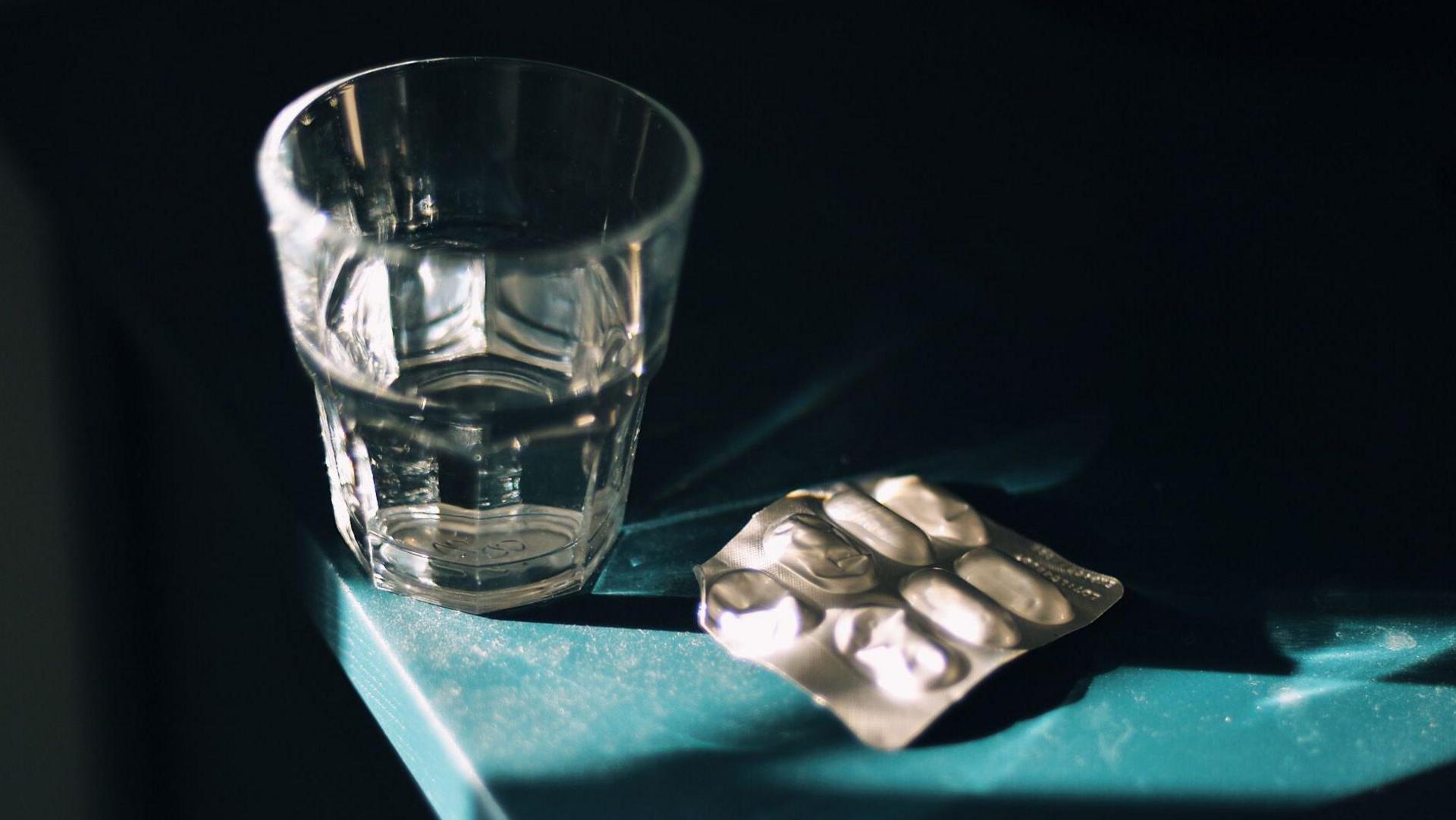Woman died after being given excess medication

Margaret Feeney was found dead with near-empty blister packs from excess medication she was prescribed
- Published
A woman who had a known dependency on her prescribed medication was given the drugs in excess days before she was found dead, a coroner has said.
Margaret Feeney was found in her home by her friend and cleaner on 1 April, having died from "the combined toxic effects of prescribed medication which she had taken in excess", an inquest concluded.
The 78-year-old had a long history of being prescribed depressants and painkillers, and having become dependent on them and recognised to over-use, she was given seven-day prescriptions.
A coroner has now raised concerns about how she came to be prescribed excess medication in the days before her death.
Peter Nieto, senior coroner for Derby and Derbyshire, said in a prevention of future deaths report published on Wednesday, that Ms Feeney had more medication than usual because of "medical prescribing decisions and arrangements" leading up to a bank holiday.
'Foreseeable risk'
Ms Feeney was issued a prescription for a lower dose of diazepam at a doctor's appointment at Macklin Street GP Surgery in Derby, on 26 March.
An existing prescription for codeine was not changed.
On 27 March, she received the new prescription, having already received her usual prescription on 25 March, which included both diazepam and codeine.
By that point, she had an excess of five days worth of diazepam.
Then on 28 March, Ms Feeney received an early prescription of codeine because of the pending bank holiday - which meant she had four day's extra of that drug.
Mr Nieto said: "In addition to the toxicological evidence, when she was found deceased there were empty or near-empty blister packs from the excess medication prescribed to her."
He said there was a "real and foreseeable risk" Ms Feeney would take the extra drugs.
A post-mortem examination found she also had pneumonia, which contributed to her death, and a high morphine level, suggesting she could have also taken a morphine-based substance, the report said.
There was no reason, on evidence, to consider that the 78-year-old had taken her own life, Mr Nieto added.
Bank holiday arrangements
In the report sent to the GP surgery and Daynight Pharmacy, the Mr Neito said he was concerned measures were not in place at the surgery or pharmacy to prevent prescription of excess medication to patients at risk of overdose.
He said: "This situation arises when early prescriptions are issued due to statutory holiday periods when most pharmacies are likely to be closed.
"I have been informed that measures have been introduced to prevent excess prescribing by taking account of single day bank holidays, but there are no measures relating to longer bank holiday periods (e.g. Easter)."
Macklin Street Surgery has been contacted for comment.
Daynight Pharmacy did not wish to comment.
The report was also sent to the NHS Derby and Derbyshire Integrated Care Board (ICB) and the Department of Health and Social Care.
A spokesperson for NHS Derby and Derbyshire ICB : "We extend our sympathies to the family and friends of Margaret Feeney over their loss.
"NHS Derby and Derbyshire works with GP practices and community pharmacies to ensure good prescribing practice in all healthcare settings and we will consider the report's findings carefully."
The surgery, pharmacy and health authorities have until 20 January to respond to the coroner.
If you are affected by any of the issues raised in this story, support and advice is available via the BBC Action Line.
Get in touch
Tell us which stories we should cover in Derby
Follow BBC Derby on Facebook, external, on X, external, or on Instagram, external. Send your story ideas to eastmidsnews@bbc.co.uk, external or via WhatsApp, external on 0808 100 2210.